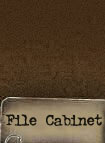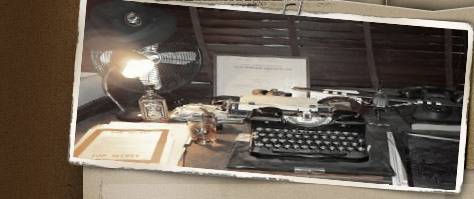 |
| |
|
| |
File
No.:

Title:
Location of "The Sad Sack
Affair"
Investigation made at:
Hamlet of Sadzot,
Municipality of 6997 Érezée,
Luxembourg Province,
Belgium.
50°17'08.8"N 5°35'36.1"E
Period Covered:
27-29DEC1944
Date: SEP2018
Case
Classification:
Location of Historic Events
Status
of Case:
Case Closed
|
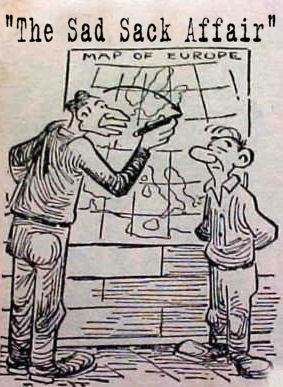
|
REASON FOR INVESTIGATION
"The Sad Sack Affair" is a
lesser known battle which took
place in the Belgian Ardennes
Forest in late December 1944. It
was the last attempt of the 2nd
SS Panzer Korps to break out of
the Bulge in the Allied lines,
established by Nazi forces
during the first stage of the
Ardennes offensive earlier that
same month. At the loss of many
American soldiers a small scale
battle on a platoon and
individual level, the Nazi
breakout attempt was halted at
the hamlet of Sadzot. This
agency visited the location and
a museum of the battle.
SYNOPSIS: |
|
As the year [1944] came to a
close the Sixth Panzer Army made
one last effort to breach the
American defenses between the
SALM and the OURTHE. This battle
took place in and around the
hamlet of SADZOT (so tiny that
it does not appear on most of
the Belgian maps). SADZOT lay on
a small creek 400 yards south of
BRISCOL, a village on the main
road between GRANDMÉNIL and
EREZÉE. The engagement at SADZOT
was fought by squads and
platoons, and so may be
appropriately called a
"soldiers' battle"; with equal
propriety the name coined by the
GI's for this confused action is
used here: "The Sad Sack
Affair."
Having given up the fight for
MANHAY and GRANDMÉNIL, the 2d SS
Panzer began to parcel out its
troops. Once again, however, the
forces actually available to the
II SS Panzer Corps were
considerably fewer than planned.
All that the 12th SS Panzer
could employ on 27DEC1944, the
date set by the army commander
for the new attack, was the 25th
Panzer Grenadier Regiment. The
2d SS Panzer contribution
perforce was limited: its
reconnaissance battalion, a
battalion of mobile guns, and
two rifle companies, a task
force commanded by Major KRAG.
The time for the attack was
midnight.
During the 27th the lines of
[American] General HICKEY's
command had been redressed. In
the process 1st BN of the 289th
Infantry had tied in with Task
Force Orr on the AISNE River
while the 2nd BN, having finally
straightened itself out,
continued the 3d Armored line
through the woods southwest of
GRANDMÉNIL. Unknown at the time,
a 1,000 yard gap had developed
south of SADZOT and BRISCOL
between these two BN’s.
At zero hour the Nazi assault
force started forward through
the deep woods. The grenadiers
made good progress, but radio
failed in the thick woods and it
would appear that a part of the
attackers became disoriented. At
least 2 companies from the 25th
Panzer Grenadier Regiment did
manage to find their way through
the gap between the BN’s of the
289th and followed the creek
into SADZOT, where they struck
about two hours after the
jump-off.
The course of battle as it
developed in the early morning
hours of 28DEC1944 is extremely
confused. The first report of
the Nazi appearance in SADZOT
was relayed to higher
headquarters at 0200 by
artillery observers belonging to
the 24th Armored FA BN, whose
howitzers were emplaced north of
the village. The two American
rifle BN’s reported no sign of
the enemy. Inside SADZOT were
bivouacked “C” Company of the
87th Chemical BN and a tank
destroyer platoon; these troops
rapidly recovered from their
surprise and during the melee
established a firm hold on the
north side of the village.
General HICKEY immediately
alerted the 509th Parachute
Infantry BN near EREZÉE to make
an envelopment of SADZOT from
west and east, but no sooner had
the paratroopers deployed than
they ran into Kampfgruppe
KRAG. |
|
(Click to
enlarge)


The village of Erezée before the
battle. American soldiers have
fun in the snow
and large caliber howitzers are
parked in the town square. |
This meeting engagement in the
darkness seems to have been a
catch-as-catch-can affair. The
American radios, like the Nazi,
failed to function in this
terrain (the 3d Armored
communications throughout the
battle were mostly by wire and
runner); the Nazis were confused
and put mortar fire on their own
neighboring platoons; and the
fight on both sides was carried
by squads and platoons firing at
whatever moved. When daylight
came the paratroopers got
artillery support, which far
outweighed the single BN behind
the enemy assault force, and
moved forward. By 1100 the 509th
had clicked the trap shut on the
Germans inside SADZOT.
There remained the task of
closing the gap between the two
BN’s of the 289th. General
HICKEY put in the 2nd BN of the
112th Infantry at dark on the
28th, but this outfit, hastily
summoned to the fight, lost its
direction and failed to seal the
gap. Early on the morning of the
29th HICKEY, believing that the
112th had made the line of
departure secure, sent the 509th
and 6 light tanks to attack
toward the southeast. But the
enemy had reorganized in the
meantime, put in what probably
was a fresh BN, and begun a new
march on SADZOT. In the
collision that followed, a
section of German 75-mm AT guns
destroyed 3 of the light tanks
and the paratroopers recoiled;
but so did the enemy.
During the morning the 2nd BN,
112th Infantry, got its bearings
and set out to push a bar across
the corridor from the west,
where contact with the 1st BN of
the 289th was firm, to the east
and the socket provided the 2nd
BN, 289th. Across the deep
ravines and rugged hills
American troops were sighted,
and believing these to be the
2nd BN the troops from the 112th
veered toward them. What had
been seen, however, proved to be
the paratroopers of the 509th.
After this misadventure and the
jolt suffered by the
paratroopers, HICKEY and the BN
commanders concerned worked out
a coordinated attack. First the
paratroopers put in a twilight
assault which forced the Hun
back. Then the 2nd BN of the
112th made a night attack with
marching fire, guiding this time
on 60-mm illuminating mortar
shells fired by the 2nd BN of
the 289th. Crossing through deep
ravines the infantrymen of the
112th drove the enemy from their
path. At dawn on the 29DEC1944
the gap finally was closed. |
|
- Source: US Army in World War
II, The European Theater of
Operations, The Ardennes: Battle
of the Bulge by Hugh M. Cole
Office of the Chief of Military
History, Department of the Army,
Washington, D.C.,
1965, Pages
600- 602,
https://history.army.mil/books/wwii/7-8/7-8_CONT.HTM
- |
|
(Click to
enlarge)

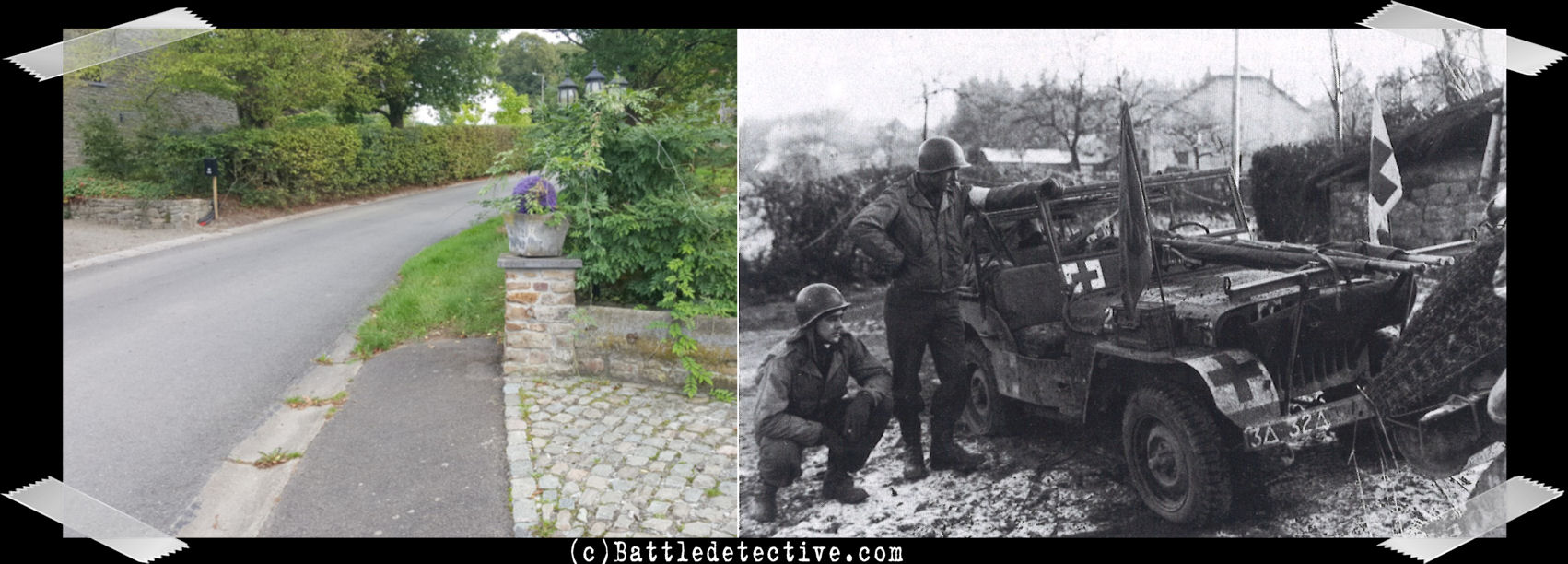
Sadzot after the
battle:
Left: Using a hedgerow
for concealment, men of the 3rd
Armored Division keep a hard
posture north of Sadzot.
Right: Medics Hamlin and
Petty of the 3rd Armored Divison
look at their destroyed
ambulance jeep. |
|
CONCLUSION:
This agency visited Sadzot, the
monument honouring the American
forces engaged in the battle and
a local museum. With the help of
the museum owner we were able to
find the location of an iconic
photo of the Battle of the Bulge
just north of the hamlet. |
|
EXHIBITS:
(click to enlarge)
1)_small.jpg) 2) 2)_small.jpg) 3) 3) 4) 4)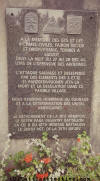 5) 5)_small.jpg)
6)_small.jpg) 7) 7)_small.jpg) 8) 8)_small.jpg) 9) 9)_small.jpg) 10) 10)_small.jpg) 11) 11)_small.jpg) 12) 12)_small.jpg) |
1)
Village of Sadzot. Dubbed Sad Sack
by American soldiers....
2) .... after the cartoon in
Yank Magazine in World War Two.
3) & 4) Monument in honor of
the men of the 509th Parachute
Infantry Battalion, the 3rd Armored
and the 75th Infantry Divisions.
5) This way to the
Sadzot Museum 44...
6) ...a 20 square meter
building....
7) ... open only by
appointment with the owner Denis
Fairon.
8) Patches of the 75th
Infantry Division, 3rd Armored
Division and the 509th Parachute
Infantry Battalion;
the "Gingerbread Man".
9) Uniform of 1LT Anthony
Gallo Covatta of the 629th Tank
Destroyer BN.
10) Various battle relics of
the "Sad Sack Affair".
11) & 12) Nazi helmets left
behind in Sadzot after the battle. |
|
Back to Battle Studies
 |
| |
|
|
| |
| |
| |
| |
| |
| |
|


